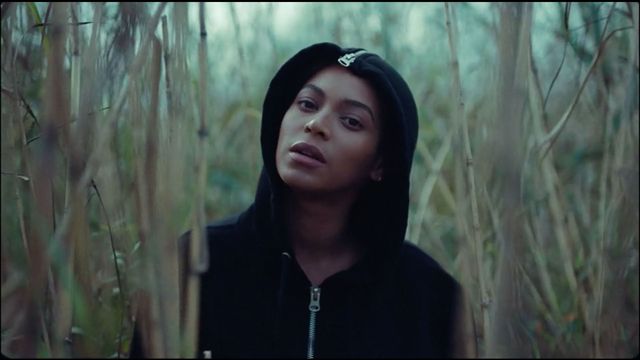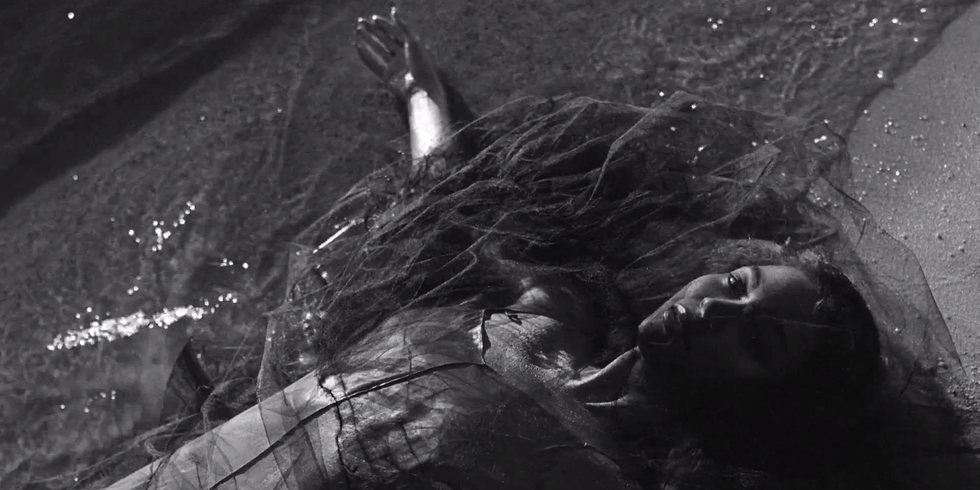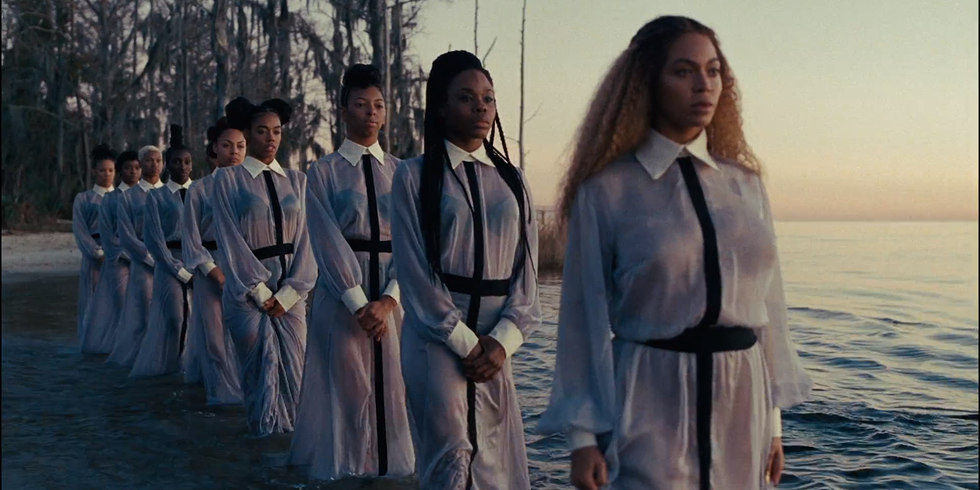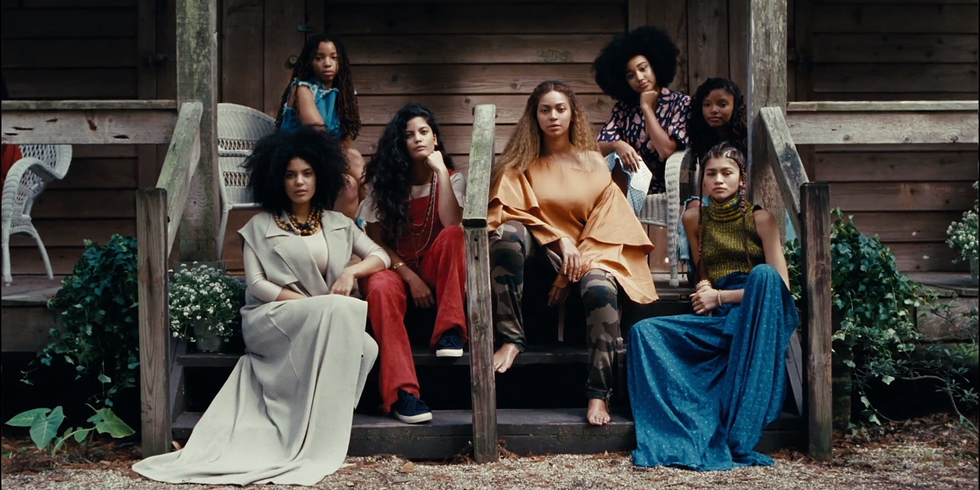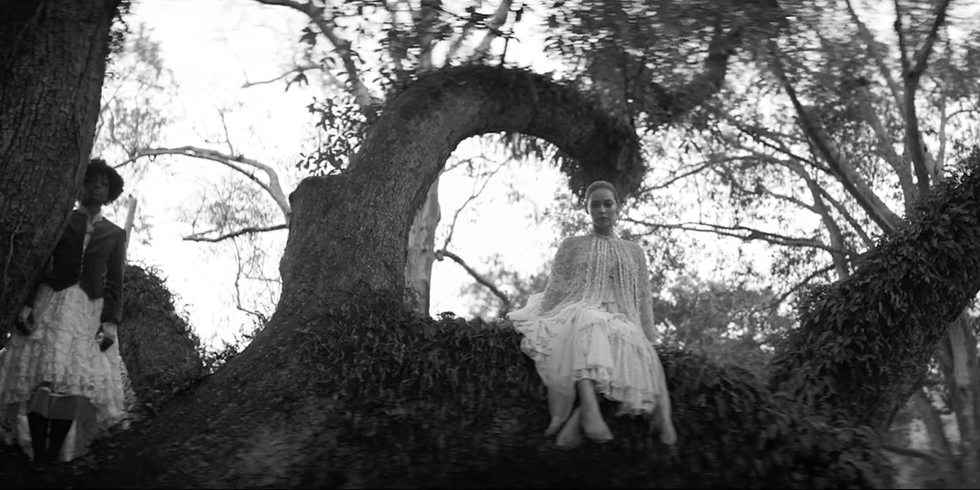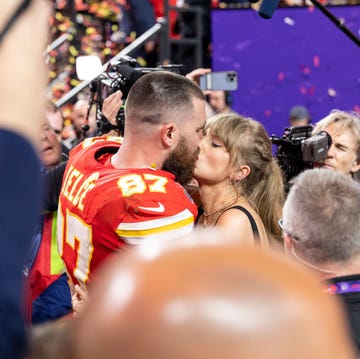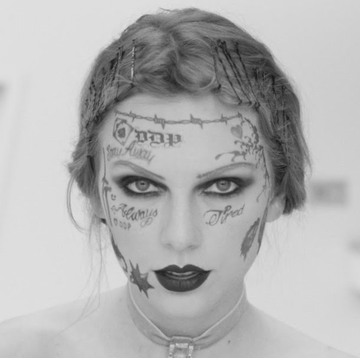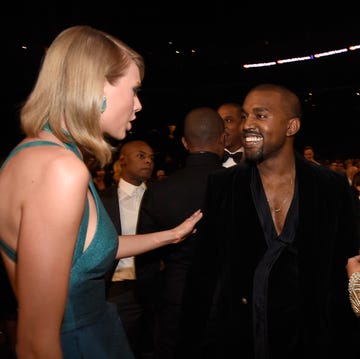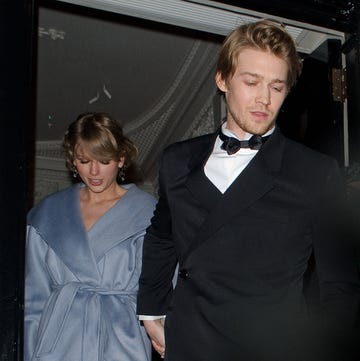"Mother dearest, let me inherit the Earth. Teach me how to make him beg. Let him make up for the years he made you wait."
After the politically charged single "Formation" and her Super Bowl performance, it seemed that Beyoncé was embarking upon a new stage of her career, one that would be filled with more images of black women and the violence—from heartbreak to the loss of our sons—that we face. But no one could have expected that Lemonade would not only fulfill these expectations but also round out to be an exhortation, a luxurious one-hour-long story that focused solely on black women and their relationship to the earth and to each other. It showed black women being not only strong, but strength personified. Yet the "strong black woman" trope was not the message here. On the contrary, this was the story of the resilient black woman, one who is never rigid but explores her emotions.
Beyoncé has declared herself a feminist, despite much criticism. And Lemonade's feminism focuses on black women's stories and the world around them. In the visual album, black women's emotions, especially those that stem from mistreatment by men, are expressed among and through the healing atmosphere of the natural environment. Take how water, a symbol of wisdom, transition, and metamorphosis repairs hurt: Beyoncé dives into deep water as she realizes how much she has sacrificed for her man. Then she treads through water with several black women, asking why that man would deny himself of all that she can give.
But Beyoncé does not tread through her emotions by herself. She has a whole brigade of black women to assist her in sorting through all of her feelings. As they move through the water and link hands with one another, they uplift her not through words but rather through proximity and touch. These women help Beyoncé usher through these realizations about self-love and acceptance. They hold hands while standing in a body of
water and face the setting sun as if they are beginning a ritual. In Lemonade, healing is not achieved through the individual but through the community.
And while the title "Lemonade" might seem ill-suited for such grand concepts, it's not. Lemons symbolize fidelity in love. When Beyoncé invokes the proverb—she was given lemons and now she's making lemonade—one way to interpret it is that she has been betrayed in her love life. But instead of allowing that bitterness to ruin her, Beyoncé bounces back by turning a bitter experience into something sweet. It is a nod to a grandmother's recipe for lemonade, which reaffirms how Beyoncé is very much a part of a strong community of black women.
That all of this empowerment takes place within nature enhances the entire special. Nature is a place where black women can be free to indulge in their emotions, roam around, and be free from any outside forces that may stifle them. The massive oak trees that appear throughout Lemonade may immediately remind a viewer of a Southern Gothic novel or might be homage to any one of Toni Morrison's works. But more importantly, the stoic black women sitting on top of the tree branches or standing in front of the oaks are there on purpose. Not only do trees stand for eternal life, but also, of course, strength. Like the trees themselves, the black women stand together, tall and unmoving. Seen together in the final chapter of Lemonade, they show that despite their anger and emptiness, they are still alive.
One of Beyoncé's biggest strengths is that she is able to lead and also fall into formation herself. Her voice glides through the sumptuous visuals of black women, often the backdrop against which other black women can exhibit just as many tumultuous emotions as she does. This stylistic choice reveals that although Beyoncé is a black woman, her experience is different from that of Lesley McFadden, Michael Brown's mother; Amandla Stenberg; or Leah Chase, the "Queen of Creole Cuisine," all of whom appear in the film. Black women are never a monolith here. Lemonade asks, "What is it like to be a black woman in America?" The answer: She is the most disrespected, unprotected, and neglected person—as quoted from Malcolm X's 1962 speech in Lemonade—and also the most resilient. Lemonade is not simply a love story but a multi-layered portrait of all that the black woman experiences, all the pain that she endures.
Lemonade is more than a showcase of just one black woman's humanity. It is a narrative of how black women's healing is a communal art, not an individualistic act. Healing might arrive through singing as Beyoncé does while others dance around her, cooking food with one another, holding hands in solidarity, or simply standing in the presence of those who are sharing in the pain. Lemonade is about the many forms of heartbreak, whether it be the consequence of infidelity or death. Yet it shows that pain does not ravage the black woman's experience but rather vivifies it, for it is through that pain that she recognizes her own tenacity and is reaffirmed by her community, without which she could not survive.
Beyoncé may be the consummate artist of our generation, and it is refreshing to see that beyond her formidable brand and millions of dollars, she is still a black woman navigating her own life, just as many other black women in America must do. She may be separated from many of us by virtue of her wealth and privilege, but she can still connect with us through emotion. She has shown that she is not immune to pain and disillusionment. Lemonade shows black women truly free in nature, away from societal pressures of who we should be and how we should feel.
Lemonade accomplished two big feats: It was a supreme accomplishment of black art, in which none of the black women acknowledge the white gaze, and it was a fortifying experience that forced the world to look at black women in their rawest forms, connecting Beyoncé, her supporters, and the earth all at once. Everything was in alignment and, for once, black female representation was not unusual; it shifted black women from the margins to the center. Lemonade does not only deserve all the praise, but also all the respect—as Beyoncé intended.
